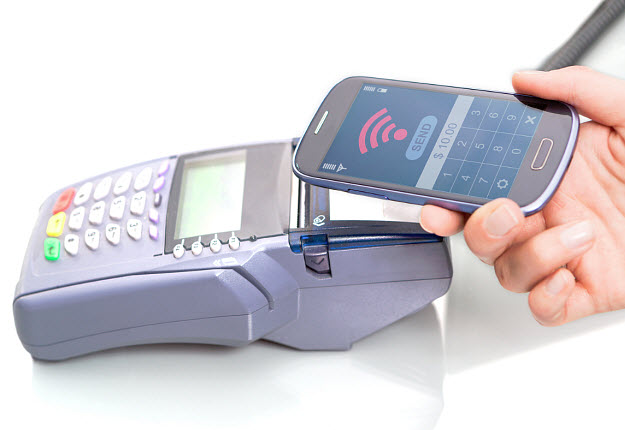New report shows the number of users to use this form of mobile payments will almost triple by 2017.
A recent Juniper Research study indicates that there could be as many as 300 million consumers worldwide who will make mobile contactless payments by the year 2017, which is a huge increase from the slightly more than 110 million that utilized this mobile payment service in 2013.
Contactless card rollouts are gaining momentum in many countries across the globe.
According to the study, several markets may soon be adopting contactless payments for mobile due to the success and popularity of contactless debit and credit cards. In addition, the introduction of contactless cards also lead to an increase in Point of Sale (POS) terminals equipped with Near Field Communications (NFC). It has now become standard for leading POS vendors like Ingenico and VeriFone to ship most of their terminals with NFC.
However, the research director and author of the report, Windsor Holden, stated that stakeholders need to work on their efforts to increase awareness among consumers regarding mobile contactless payments. Furthermore, he said the value proposition also needs to be taught to retailers. Holden commented that contactless payment technology is mainly “being sold to retailers on the basis of faster throughput at the POS. The other critical opportunities offered by contactless – such as consumer engagement and product upselling – are much lower on their radar.”
The cost of mobile contactless payments cards is higher than plastic cards.
The Juniper study also noted that NFC rollouts have been held back due to the lack of a clear business model. Currently, it costs more to issue a mobile payment card than it does a plastic card.
In addition, it is likely that the mobile contactless payments market will receive a significant boost from the expected launch of Apple’s iWallet service. That being said, currently, it is not clear if extra POS upgrades will be necessary once the service is launched. Moreover, it has not been officially confirmed that Apple will be releasing a mobile payments service or that it will feature NFC technology. This isn’t the first time NFC rumors have been linked to Apple, but nothing has ever come of these rumors.
The mobile field shouldn’t be taken lightly
Mobile commerce is quickly proving that it is much more than a passing novelty. Mobile technologies like smartphones and tablets are playing a larger role in people’s daily lives. As such, they are beginning to demand services that are specifically tailored for mobile life. Retailers and other businesses are beginning to accommodate this demand, but many are running afoul of serious security issues that could have a catastrophic effect on the mobile space as a whole.
One of the most significant problems that the mobile space faces in terms of security is an overabundant lack of awareness from consumers and businesses alike. Both parties are somewhat oblivious to matters of security, especially when it comes to mobile technology and mobile-centric services. For businesses, this lack of awareness is largely due to decades spent in a world without mobile technology. Consumers are somewhat uninterested in mobile security, wanting instead for their devices and their favorite brands to handle the behind-the-scenes issues without every making their efforts visible.
Lack of awareness is a serious problem
The problem is that this lack of awareness creates a risky environment for mobile commerce. The mobile space is already very attacking to malicious groups because of its trafficking of financial information. A lack of security awareness means that these groups can, at times, move throughout the mobile space unchecked, exploiting financial information wherever they find it. This is becoming a major problem for some businesses focused on the mobile space as they are finding themselves exposed to risks that they do not fully understand how to deal with.
Many businesses are beginning to involve themselves in the mobile world. These businesses see a great deal of promise in mobile commerce and have been inspired by the major success that others have found in this field. Inspiration is not enough to ensure success for these companies, however, as many have rushed into the mobile space with poorly designed platforms and services that have been met with failure. Many of these services lack the security features necessary to be considered viable, while others simply don’t work well.
These platforms represent a significant investment from the companies that make them and their failure constitutes a serious loss. Companies looking to get into the mobile commerce game have to be careful and gauge whether their hasty entry into the market is worth the potential for failure and serious loss.



